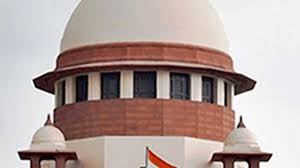Caste Certificate – Validity of – The appeals arose from a common judgment of the Bombay High Court, which quashed the order of the District Caste Scrutiny Committee validating the appellant’s caste claim as ‘Mochi – Scheduled Caste’ in Maharashtra. The appellant contested the 2019 Parliamentary election from Amravati constituency as an independent candidate on a reserved seat for Scheduled Caste, leading to challenges against her caste certificate’s validity. The Scrutiny Committee had accepted the appellant’s caste claim based on documents including a bonafide certificate and an indenture of tenancy from 1932, affirming her forefathers’ migration from Punjab to Maharashtra. The High Court overturned the Committee’s decision, alleging fraudulent procurement of documents by the appellant.
In its analysis, the Supreme Court highlighted the procedural guidelines for caste certificate validation established by the Constitution Bench in Kumari Madhuri Patil vs. Additional Commissioner, Tribal Development, emphasizing the need to streamline the procedure to prevent fraudulent claims. The Court noted the extensive procedure prescribed by the Maharashtra Act of 2000 and Rules of 2012 for Scrutiny Committees to verify caste claims, emphasizing the Committee’s fact-finding authority and minimal interference allowed by courts.
The Supreme Court observed that the High Court’s interference amounted to a roving inquiry, exceeding its jurisdiction under Article 226 of the Constitution, especially when the Scrutiny Committee had followed due process and arrived at its decision based on evidence. It reiterated the principle that the High Court should not act as an appellate body in certiorari petitions, refraining from reappreciating evidence unless the findings were perverse or suffered from a jurisdictional error. The Court reinstated the Scrutiny Committee’s validation order, emphasizing its expertise in evaluating caste claims and adherence to procedural requirements.
Moreover, the Court clarified that the validation of the appellant’s caste did not amend the Presidential Order, as she claimed ‘Mochi’ based on her genealogical history, aligning with Entry 11 of the Presidential Order applicable to Maharashtra. The Court allowed the appeals, setting aside the High Court’s judgment and restoring the Scrutiny Committee’s validation order. (Para 9, 12, 16, 19, 24)
SUPREME COURT OF INDIA
2024 STPL(Web) 227 SC
[2024 INSC 266]
Navneet Kaur Harbhajansing Kundles @ Navneet Kaur Ravi Rana Vs. State Of Maharashtra And Others
Civil Appeal No(S). 2741-2743 of 2024-Decided on 4-4-2024
https://stpllaw.in/wp-content/uploads/2024/04/2024-STPLWeb-227-SC.pdf







